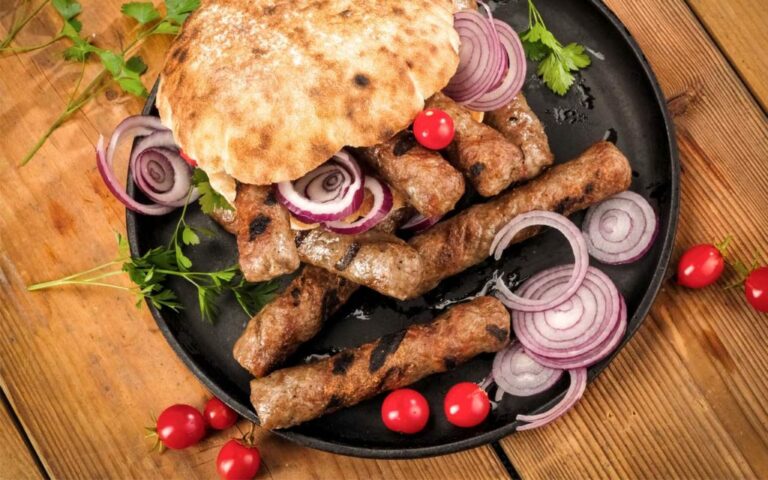Introduction: Bosnian Cuisine and Dining
Bosnian cuisine is a mix of Mediterranean and Ottoman influences, with a variety of dishes that are hearty, spicy, and flavorful. It features a range of meats, vegetables, and dairy products, and is known for its use of spices such as paprika, cumin, and garlic. Bosnian dining is a social affair, with a strong emphasis on hospitality and shared meals.
Traditional Bosnian Meals and Serving Style
Traditional Bosnian meals are typically served family-style, with a variety of dishes placed in the center of the table for everyone to share. Common dishes include cevapi (grilled meat sausages), burek (a savory pastry filled with meat, cheese, or vegetables), and dolma (stuffed vegetables). Bread is also a staple of Bosnian cuisine and is often served alongside the meal.
Table Setting and Seating Arrangements
In a formal Bosnian dining setting, the table is typically set with a tablecloth, plates, and utensils for each guest. Seating arrangements are often based on age and gender, with older and male guests given priority seating. Guests are expected to wait until the host invites them to sit down before taking their seat.
Greetings and Saying Grace
Bosnian dining etiquette places a strong emphasis on hospitality and respect for the host. Guests are expected to arrive on time and greet the host upon arrival. Saying grace is also common before the meal, with guests taking a moment to express gratitude for the food and the opportunity to share the meal together.
Dining Etiquette: Dos and Don’ts
When dining in Bosnia, it is important to follow certain customs and etiquette. Guests should wait for the host to begin eating before digging in, and should avoid double-dipping or reaching across the table for food. It is also considered polite to try a bit of everything that is offered, even if it is something unfamiliar.
Toasts and Drinking Customs
In Bosnian dining culture, toasting is a common practice. When proposing a toast, it is important to make eye contact with each person at the table and hold the glass with the right hand. Drinking alcohol is also common, with rakija (fruit brandy) being a popular choice.
Handling Utensils and Eating Food
Bosnian dining etiquette dictates that utensils should be held with the right hand and used to cut food into bite-sized pieces. It is not polite to slurp or make loud noises while eating, and guests should avoid placing their elbows on the table. When finished eating, guests should place their utensils parallel to each other on the plate.
Conclusion: Appreciating Bosnian Dining Culture
Bosnian dining culture is a rich and vibrant tradition that emphasizes hospitality, respect, and shared meals. By following proper etiquette and customs, guests can fully appreciate the unique flavors and social aspects of Bosnian cuisine. Whether dining in a formal setting or enjoying a casual meal with friends and family, the experience of Bosnian dining is one to be savored and appreciated.

